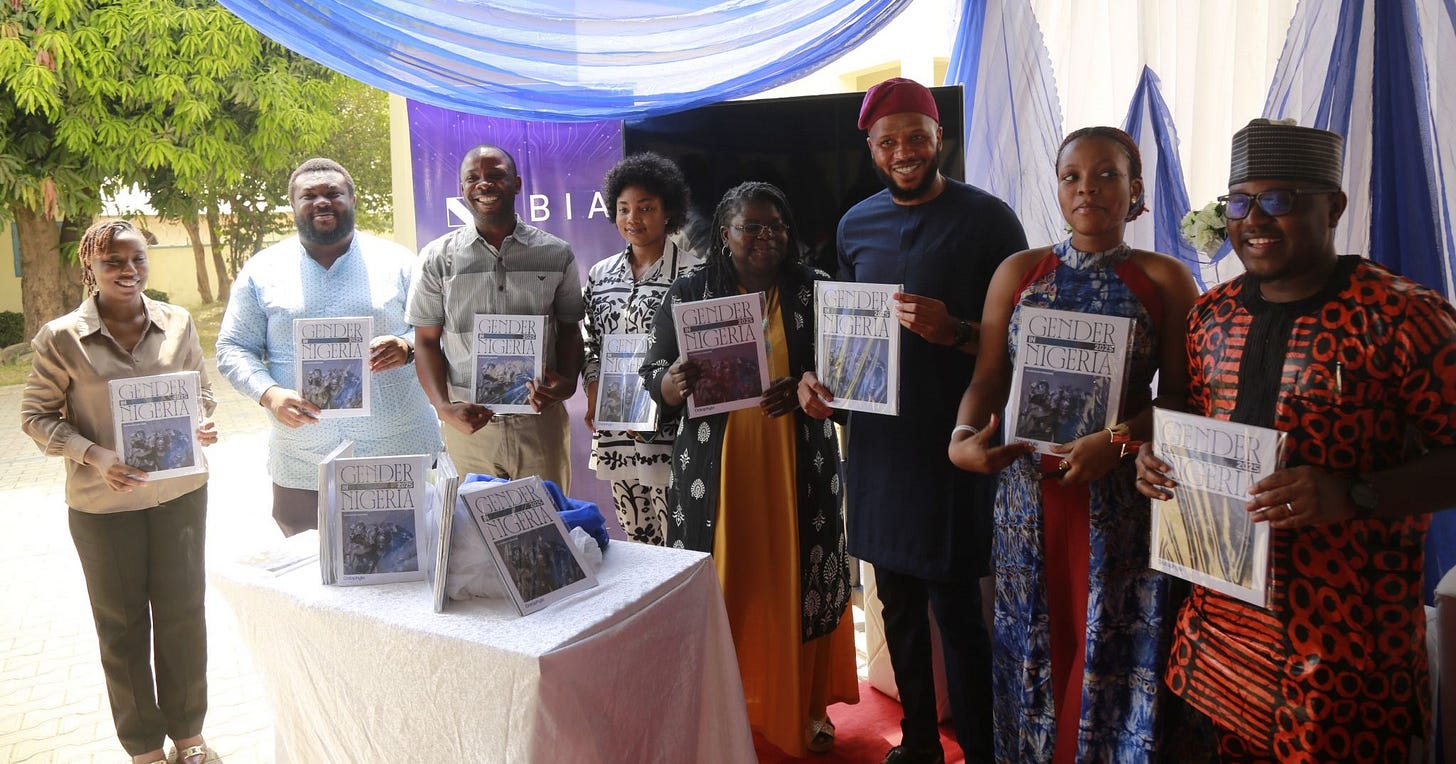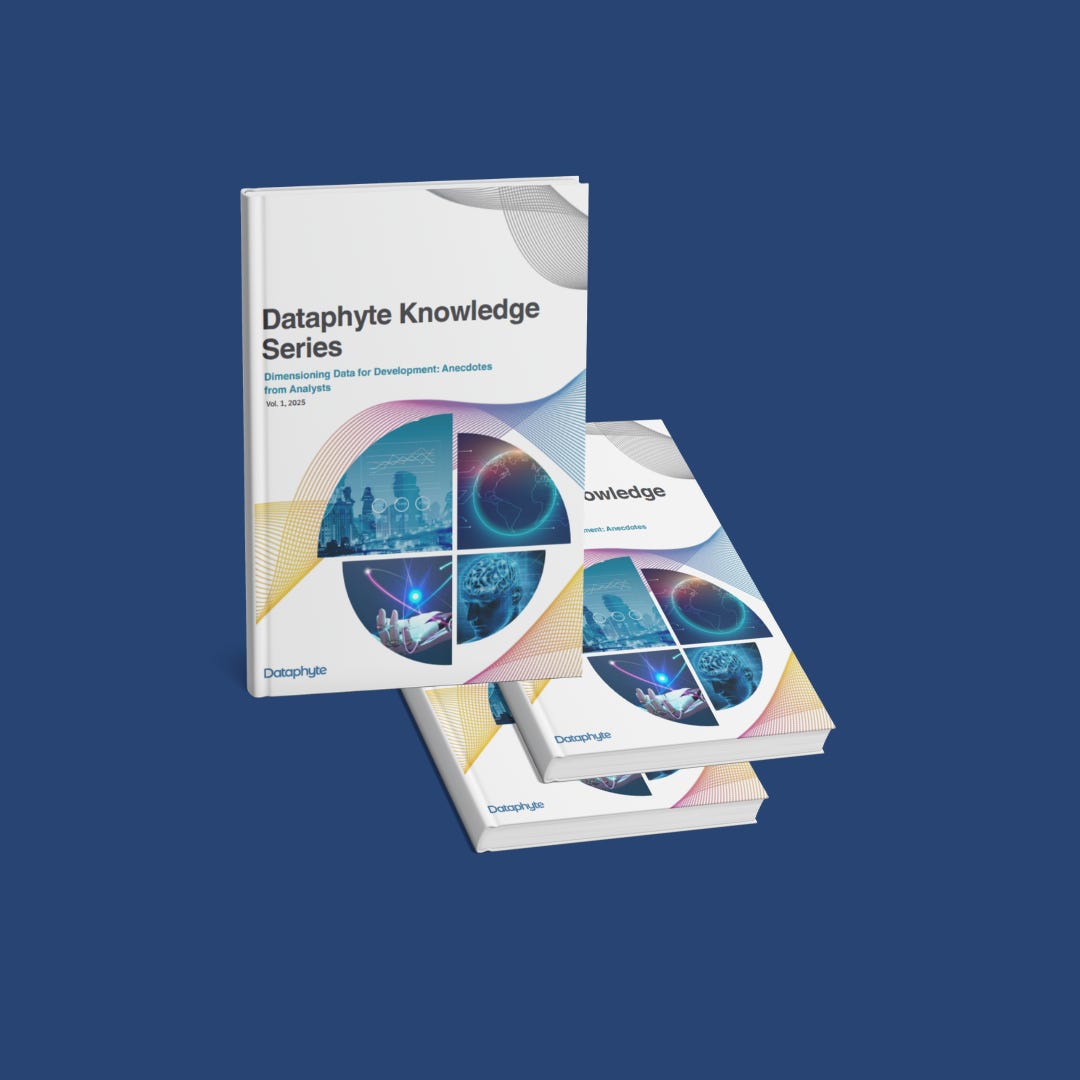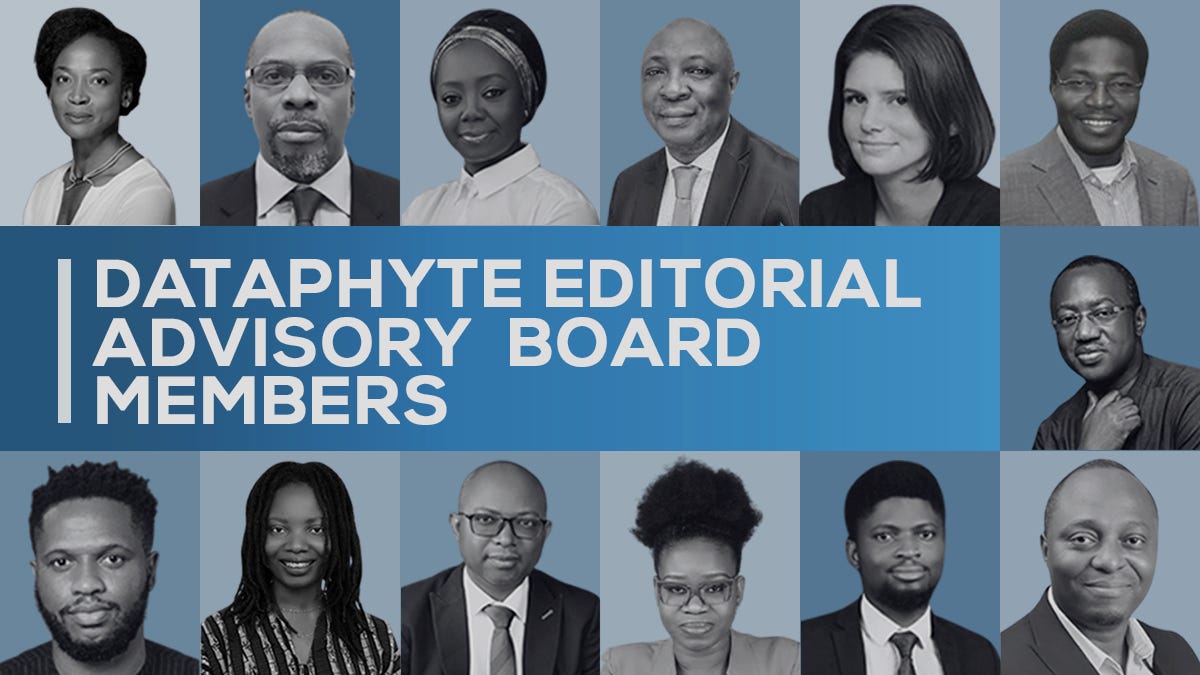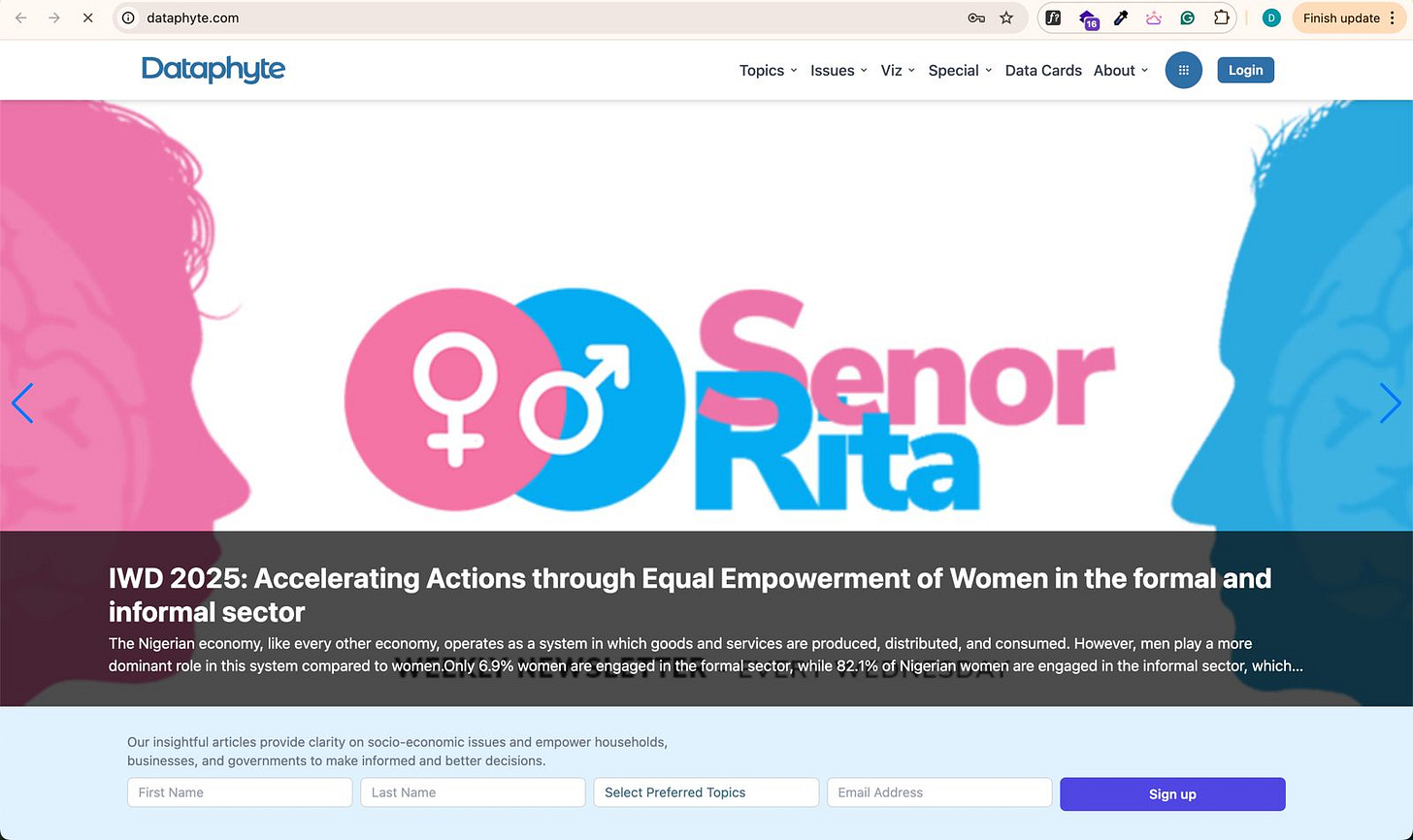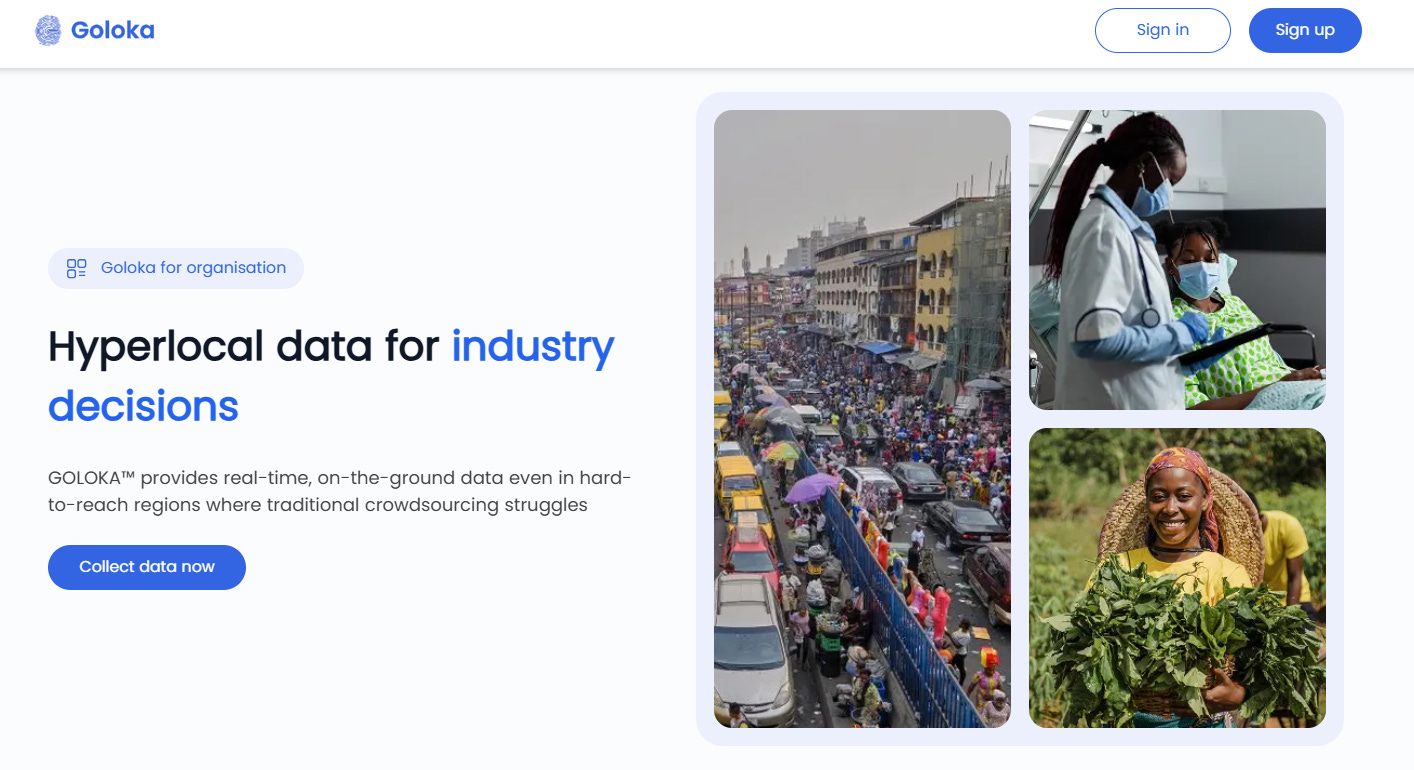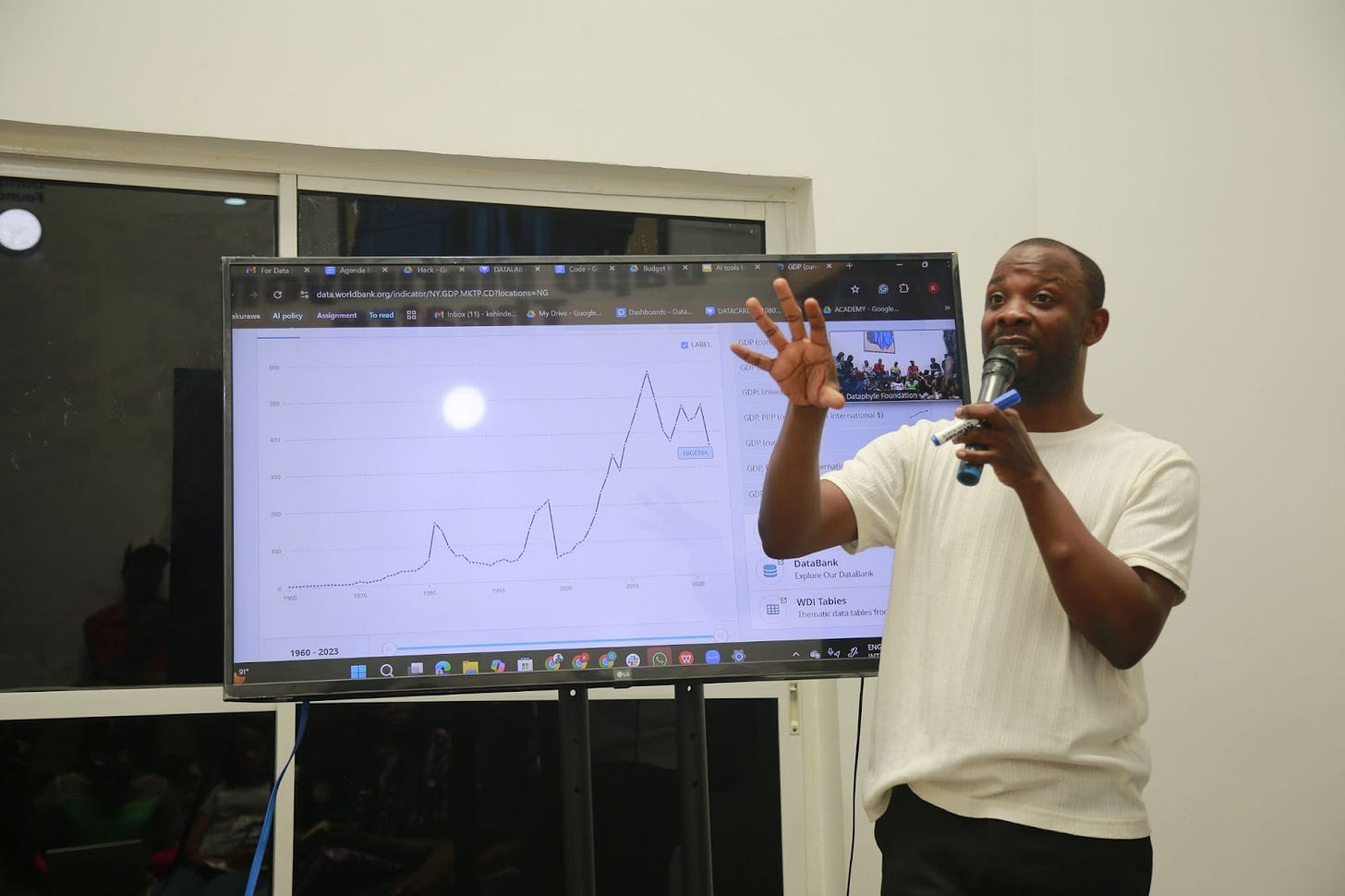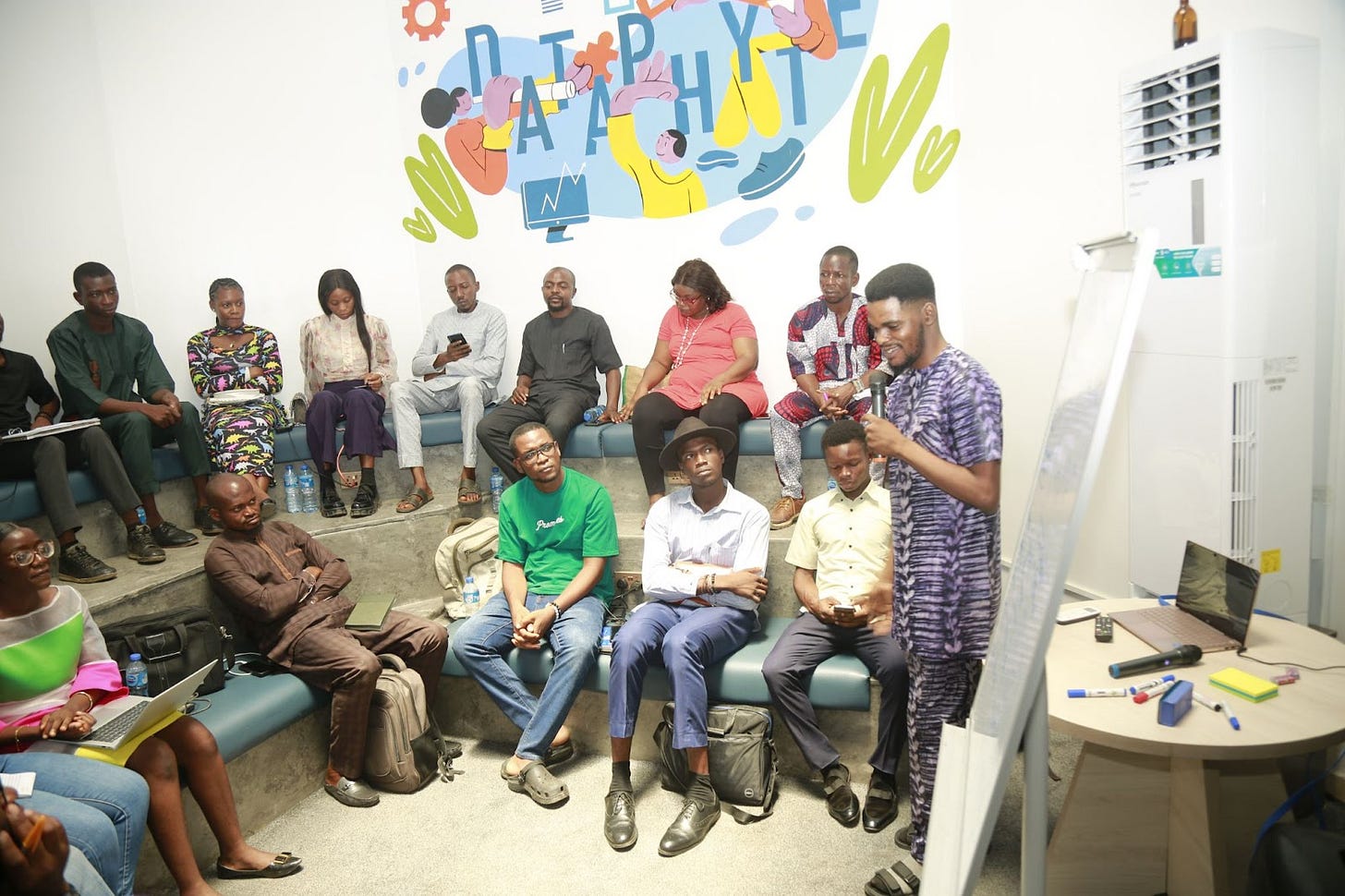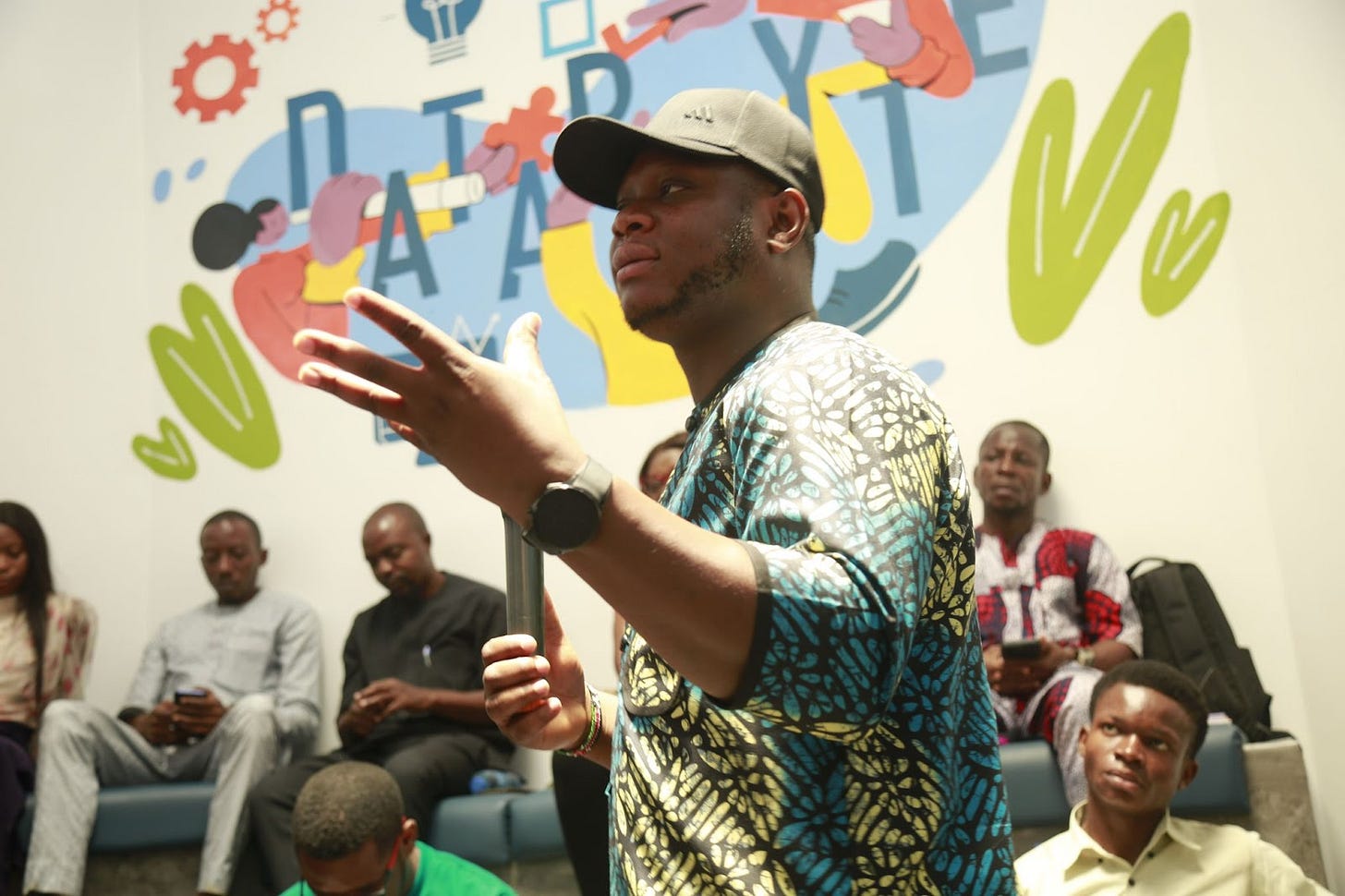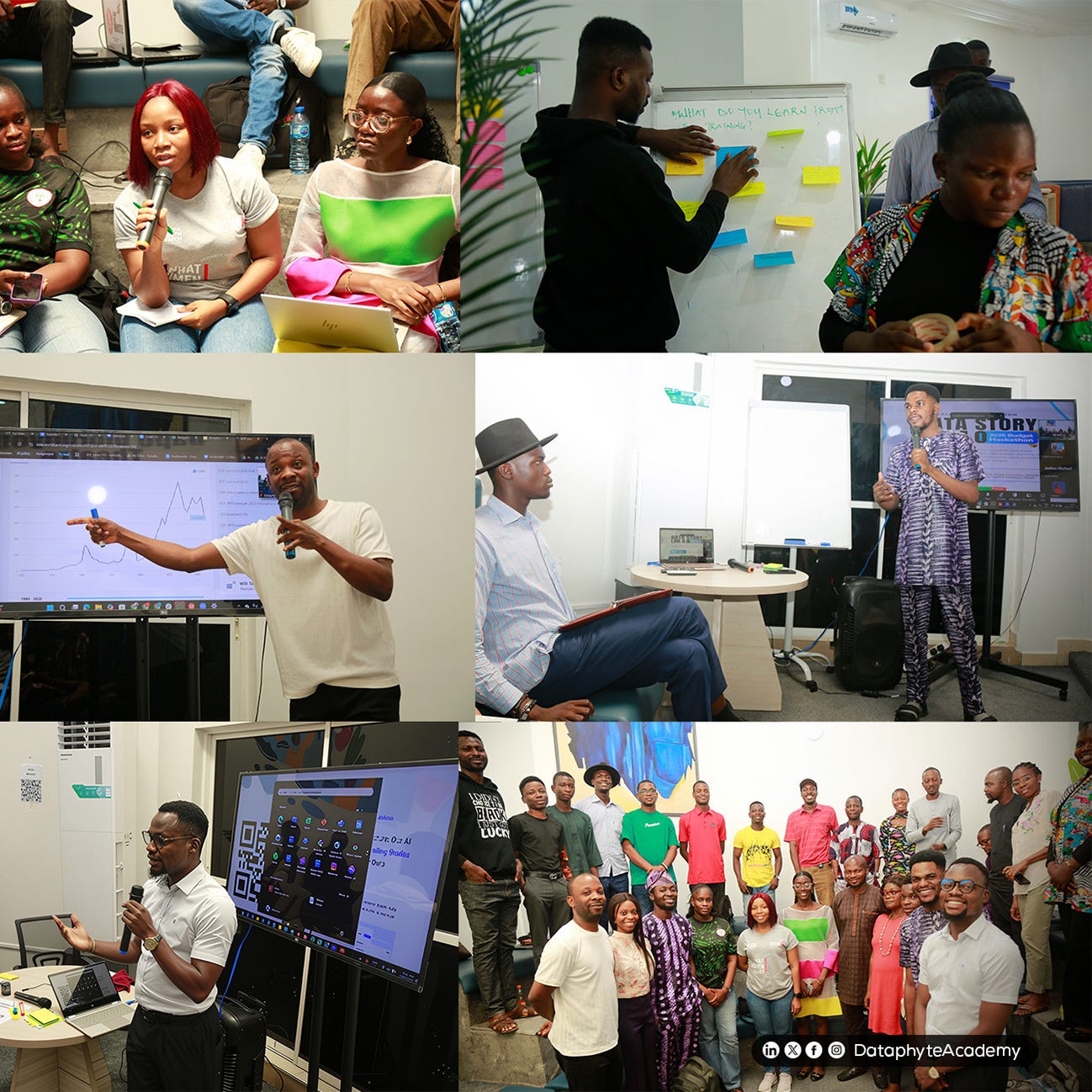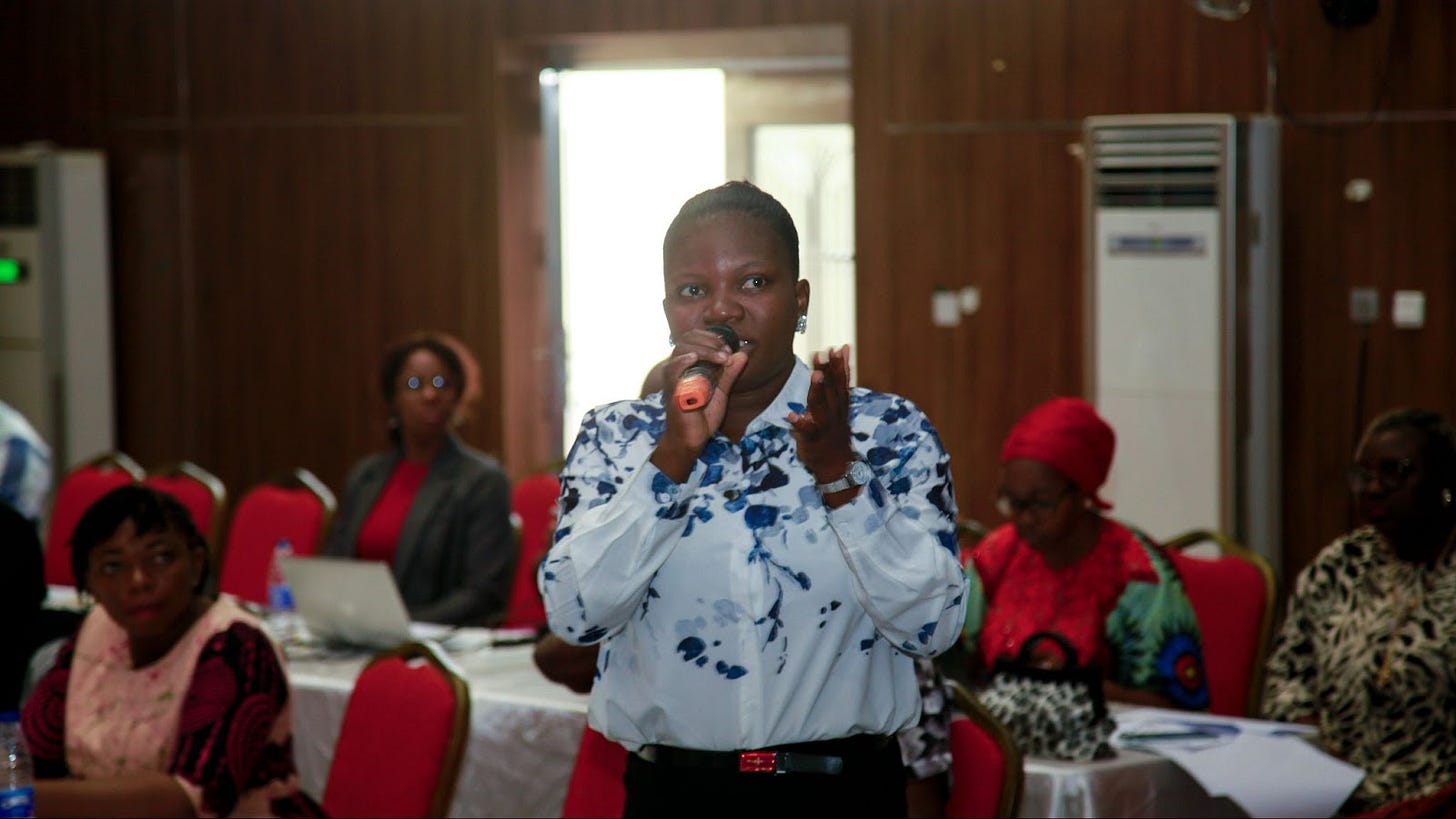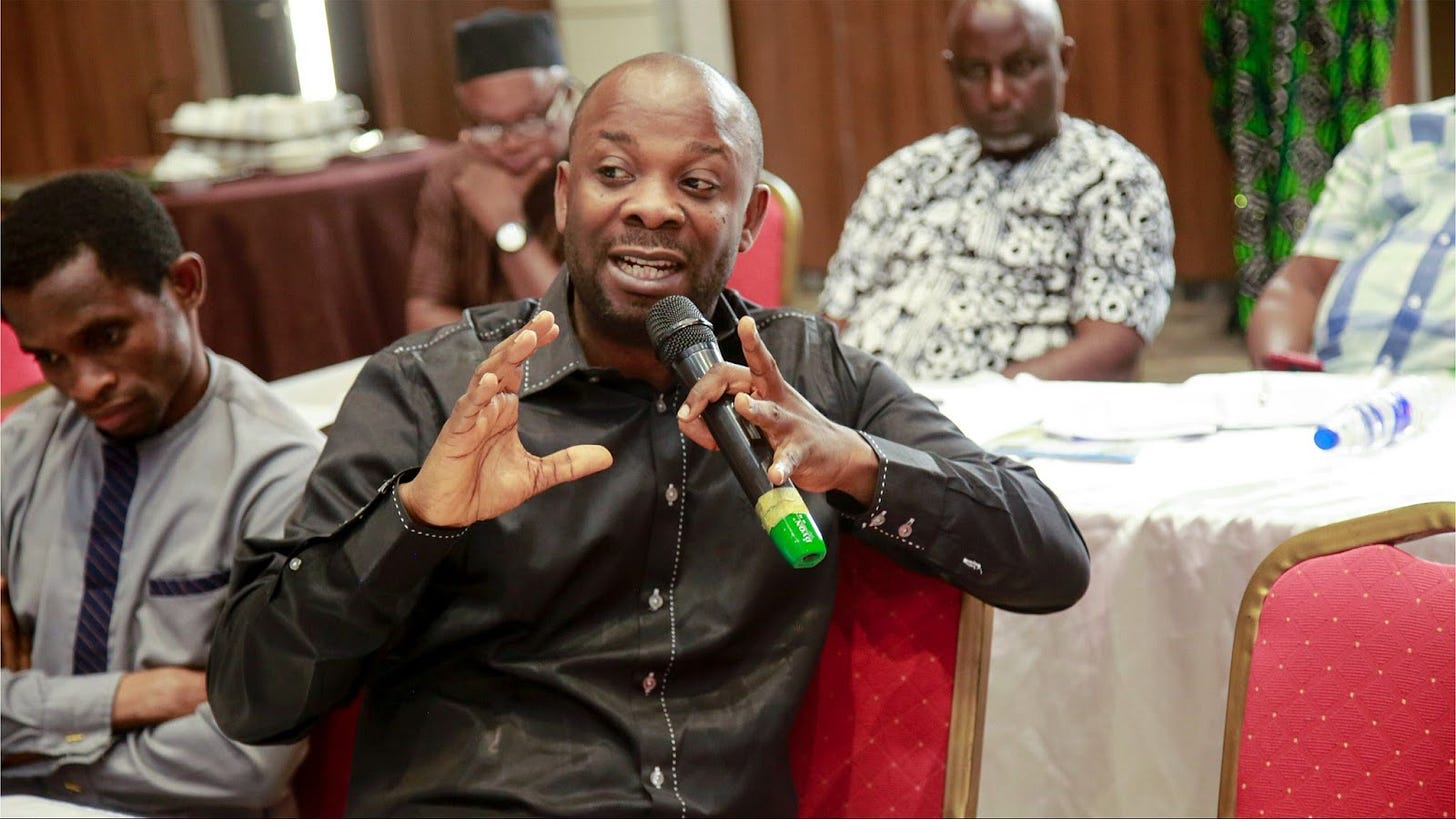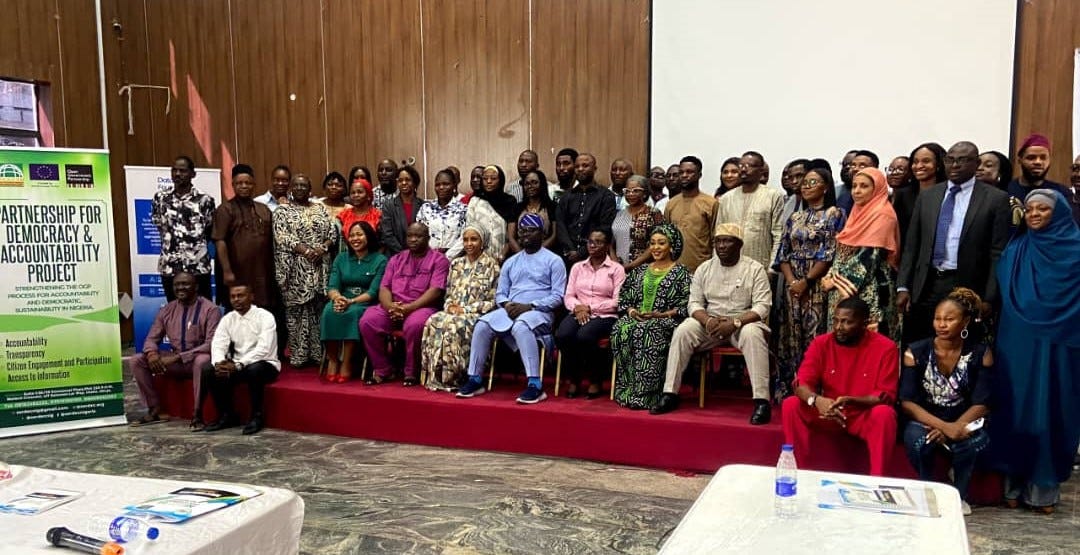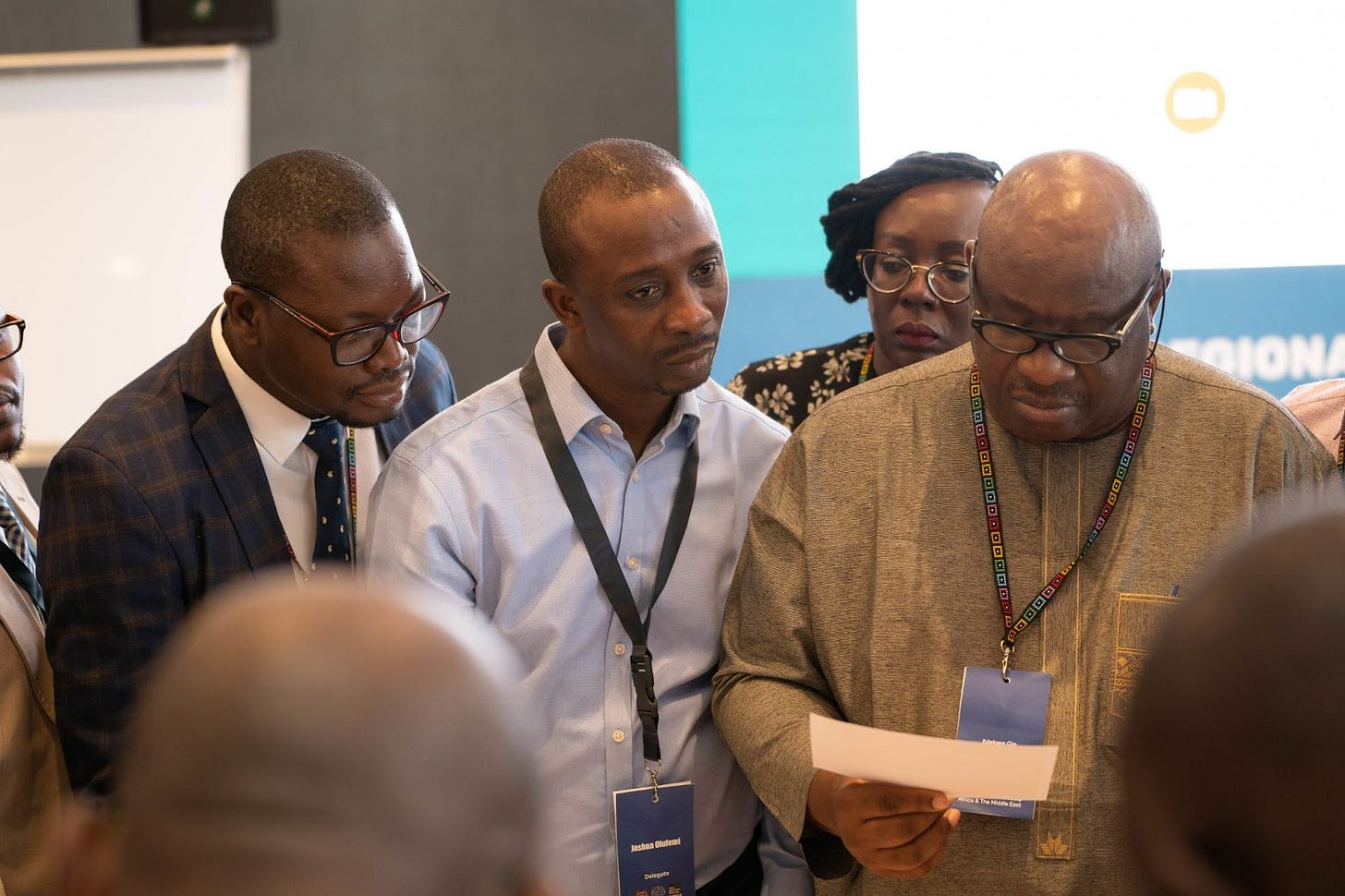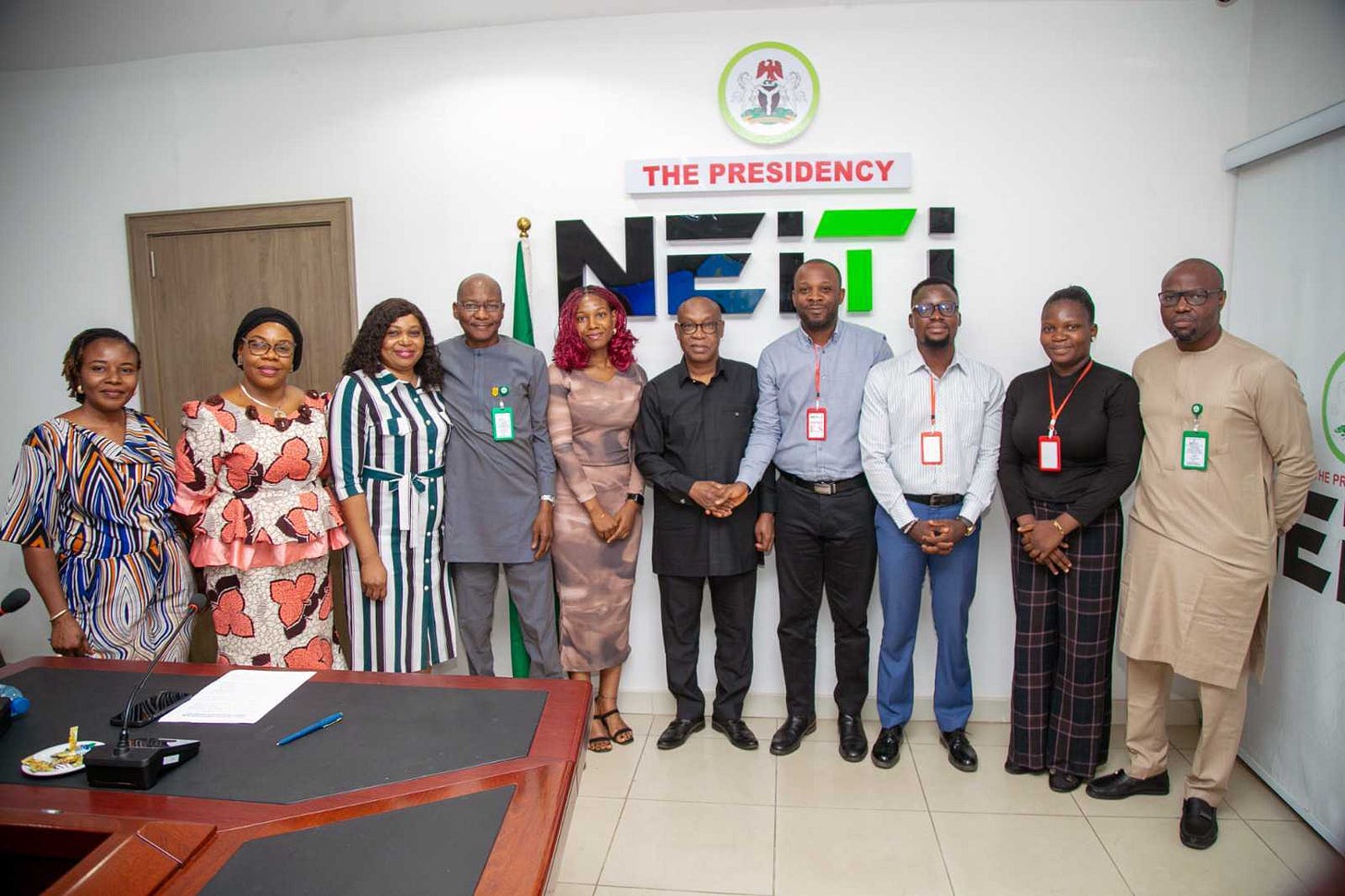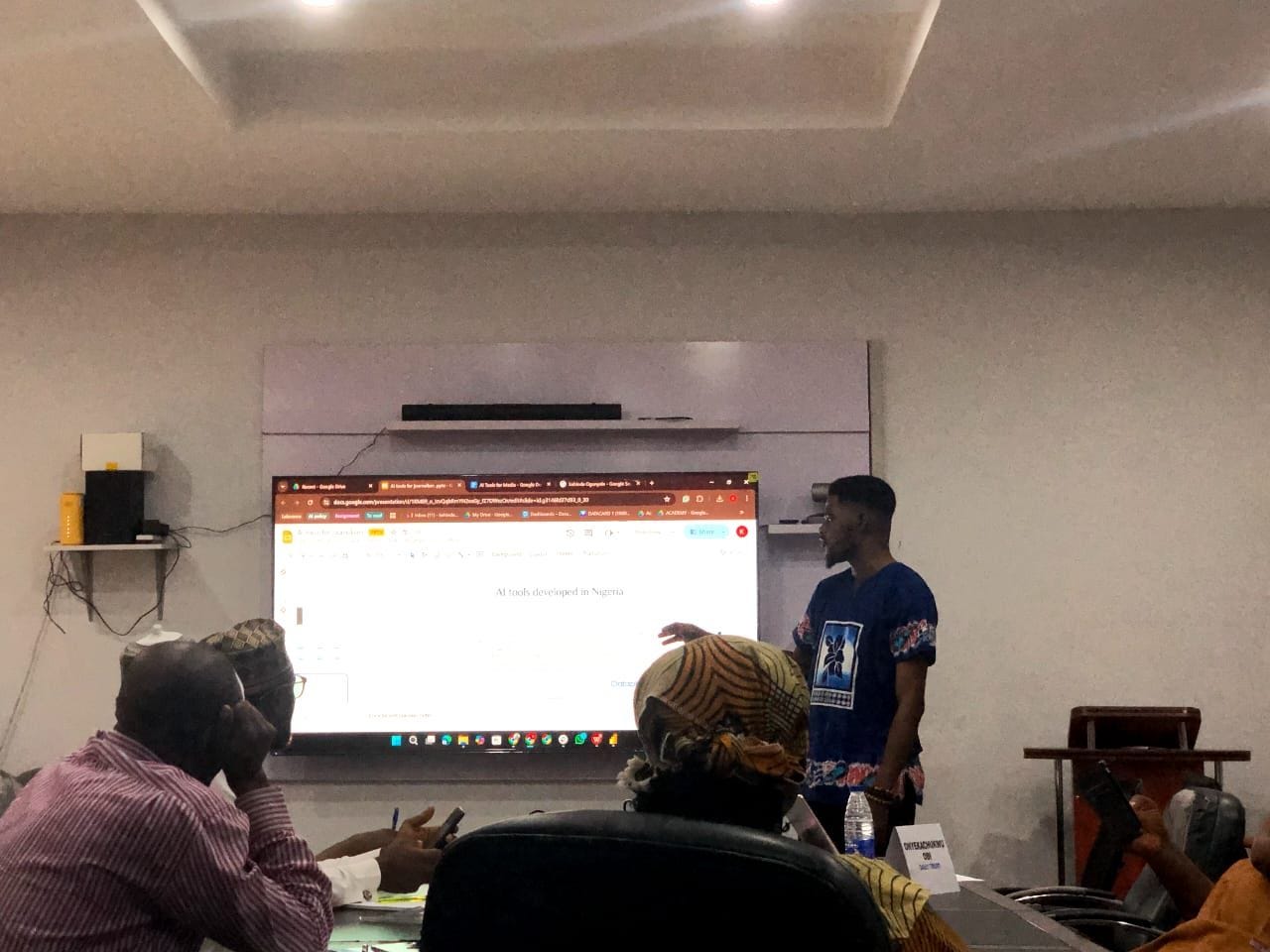March at Dataphyte
March marked a milestone for Dataphyte, a month of reflection, celebration, and continued impact. From commemorating five years of advancing data-driven change to hosting critical policy dialogues and unveiling new knowledge products, March captured Dataphyte’s unwavering commitment to open governance, evidence-based development, and social transformation.
Dataphyte @5: Five Years of Data for Development
On March 28th, Dataphyte marked its fifth anniversary — a significant milestone in our journey to advance socio-economic development through data tools and technology.
To commemorate the occasion, Dataphyte launched two flagship knowledge products:
Gender in Nigeria 2.0 – The second edition of our gender advocacy brochure, released to spotlight gender disparities and advocate policy reform is an update to the 2020 Gender Report. This new edition provides fresh insights and updated statistics on key gender equity themes in Nigeria, covering education, marriage, health, and societal awareness.
Dataphyte Knowledge Series Vol. 1 – a data-driven compendium providing fresh perspectives on governance, economic policy, and social development.
The celebration also featured the launch of Dataphyte’s newly redesigned Insight website, marking a strategic shift to a subscription-based model. The Dataphyte insight website will serve as a hub for data-driven conversations bridging the gap between citizens, policymakers, and change makers. Another key highlight of the event was the unveiling of Dataphyte’s Editorial Advisory Board (EAB), a distinguished panel of experts who will provide strategic guidance on Dataphyte’s editorial direction and research priorities.
The Board brings together a diverse group of individuals with extensive, cross-sectoral expertise in socio-economic development, democracy, artificial intelligence, public policy, and think tank engagement across Africa and the diaspora. The board is chaired by Prof. Adeola Adenikinju, with Dr. Leena Hoffmann serving as Vice Chair and Dr. Temitope Laniran as Secretary. Other members include respected professionals such as Dr Yemi Kale, Ms Cynthia Mbamalu, Mr Stanley Achonu, Ms Eva Constantaras, Ms Teni Tayo, Prof. Seun Kolade, Mr Henry Adigun, Mr Atiku Samuel, Ms Ayisha Osori, and Mr Abdulazeez Elayo.
Media Innovation through Technology: Insight and Data Access
March also saw the upgrade of two key data access platforms:
New Insight Website: Dataphyte launched a subscription-based platform that will deliver exclusive, in-depth insights, investigative reports, and data-driven storytelling to a growing audience of discerning readers. Through this new Insight website, subscribers will enjoy complimentary access to: investigative reports; in-depth and exclusive data stories and analysis; exclusive resources for professionals, researchers, and policymakers; and tailored newsletters and alerts on emerging trends in data and governance.
This transition marks a strategic step in making Dataphyte’s policy research and communication arm more self-sustaining. It will also support the continued production of high-quality, impactful content that addresses pressing issues in governance, the economy, health, education, climate change, and beyond.
Goloka.io: Recent updates to Goloka.io focused on debugging, system refinements, and overall platform optimisation to ensure a smoother, more reliable user experience. Key improvements include enhanced platform stability, resolution of edge case issues, and performance upgrades across major features.
Looking ahead, we are rolling out a new feature that enables organisations to invite specific contributors to private data collection campaigns. This functionality supports more targeted, secure, and controlled data gathering within trusted networks giving organisations greater flexibility in how they design and execute their data campaigns.
From Data to Action: Accelerating Access, Equity and Social Change
On March 7th, Dataphyte commemorated International Women’s Day 2025 with a Twitter Space conversation themed “From Data to Action: Accelerating Access, Equity, and Social Change.” The session attracted 74 participants and featured engaging, thought-provoking discussions led by guest speakers Adenike Aloba and Ogechi Okebugwu, Program Manager at the Small Scale Women Farmers Organisation in Nigeria (SWOFON).
During the training, Adenike Aloba stressed the vital role of data in advancing gender equality. She noted that while access to data is a crucial starting point, it is not enough. "We need hyperlocal data that captures lived realities to drive real impact, especially in the face of slow government responses," she said. "Even when data is missing, that absence tells a story, it’s a call to action.”
Ogechi Okebugwu, also shared how the organisation’s advocacy has evolved over time: “We began as women demanding access land, tools, resources. But we soon realised that to make our voices heard, we needed data to support our demands and inform our strategy.”
Data Story Lab 4.0: 2025 Budget Hackathon
Dataphyte hosted an in-person training for over 25 journalists representing 16 newsrooms across Nigeria. Held at Dataphyte’s Innovation Hub, the session offered an in-depth exploration of the 2025 Nigerian budget. This physical training followed the successful completion of three virtual sessions, building on the momentum to provide a more hands-on, immersive experience.
Facilitated by experts including Joshua Olufemi, Oluseyi Olufemi, Damilola Ojetunde, and Kehinde Ogunyale, the four-hour training equipped participants with practical skills for navigating budget documents, unpacking budget accountability frameworks, and crafting compelling, data-driven stories.
Through interactive exercises and valuable expert insights, attendees gained a stronger grasp of how to link budget data to real-world issues, ensuring that financial policies and allocations become more transparent and accessible to the public. This initiative is part of Dataphyte’s ongoing commitment to promoting data-driven journalism and enhancing transparency in governance.
Shaping Open Governance: Drafting Nigeria’s NAP IV
From March 18 to 20, Dataphyte, in collaboration with the Open Government Partnership (OGP Nigeria), convened a three-day retreat to kickstart the drafting of Nigeria’s fourth National Action Plan (NAP IV). The retreat brought together stakeholders from government and civil society organizations to review the implementation of NAP III and deliberate on key commitments and thematic areas to retain or revise. Participants also explored new priorities aligned with Nigeria’s current developmental needs and the broader goal of advancing open government principles.
As the civil society co-chair of the Technology and Innovation (T&I) Thematic Working Group (TWG), Dataphyte emphasised the integration of technology and innovations into the implementation of OGP action plans, including NAP IV.
During the retreat, Dataphyte delivered a presentation on Digital Governance, advocating for the co-creation of an interoperable digital infrastructure in Nigeria. The presentation drew on baseline research conducted by the Dataphyte Foundation, which assessed the current state of Digital Public Infrastructure (DPI) in the country, highlighting existing capabilities as well as critical gaps that need to be addressed.
Dataphyte at the Open Government Partnership (OGP) Summit in Kenya
As part of Dataphyte’s commitment to advancing governance transparency and accountability, Dataphyte engaged in strategic partnerships and high-level dialogues, including participation in the Open Government Partnership (OGP) Summit held in Kenya. At a dedicated side event during the summit, Joshua Olufemi presented Dataphyte’s research on Digital Public Infrastructure (DPI), titled “Co-creating an Interoperable Digital Public Infrastructure: Baseline Assessment of Nigeria’s DPIs and E-Government Services.”
Stakeholder Engagements: Partnership and Collaboration
As part of our efforts to deepen partnerships and foster collaboration, Dataphyte is committed to fostering stakeholder collaboration while advancing access to information and promoting data-driven development within Nigeria's civic space.
In March, the Dataphyte team made courtesy visits to several key organisations, including the Nigeria Incentive-Based Risk Sharing System for Agricultural Lending (NIRSAL), the Ministry of Youth Development, and the Nigeria Extractive Industries Transparency Initiative (NEITI).
The visits aimed to strengthen partnerships and align efforts around Dataphyte’s initiatives to promote transparency in the extractive sector, boost youth engagement, and support agricultural policy reforms.
External Engagements: Workshop on Investigative Reporting for Editors
In March, Dataphyte Academy Trainer, Kehinde Ogunyale, led a three-day session on AI optimization for investigative reporting, organized by the Daily Trust Foundation. He engaged line editors from selected newsrooms, demonstrating how Dataphyte tools like Goloka, Nubia, and Afani can support story ideation and streamline the editing and pitch development process.
Dataphyte Insights: Nigeria's Economic and Social Landscape
Dataphyte also released 13 newsletters, 2 special reports, and 15 data cards on various key topics.
Pocket Science explored the financial and social dimensions of life in Nigeria, spotlighting the gap between income and essential needs. It questioned whether a living wage could provide real relief for retired low-income pensioners and examined the persistent financial pressures facing the healthcare sector. One edition highlighted the nutritional shortcomings in Nigerian prisons, revealing how even the basic dietary needs are often unaffordable. Another edition explored the economic realities of love and commitment, showing how economic hardship, income disparity, and financial insecurity are reshaping marriage trends and when many Nigerian men choose to marry.
SenorRita sustained its focus on gender equity with a series of editions spotlighting the theme of International Women’s Day 2025. It explored the imperative of equal empowerment for women across formal and informal sectors, the transformative power of girls’ education, and the vital role of women in agriculture. One of the editions also examined how imbalanced workplace feedback is pushing many women toward self-employment, revealing the nuanced challenges they face in professional spaces.
Marina and Maitama unpacked key developments shaping Nigeria’s fiscal and investment landscape. From renewed momentum in the banking sector and declining subnational debt to a sharp 13.99% drop in net domestic credit and efforts to strengthen air ties with Jamaica. Record-breaking gold prices sparked debate about the timing of investment, while the declaration of a state of emergency in Rivers State spotlighted democratic governance and federal power dynamics. Despite falling investment rankings, rising inflows underscore Nigeria’s complex but promising economic outlook.
Data Dive explored Nigeria’s slow progress on gender parity amid setbacks in women’s political leadership, including the suspension of Senator Natacha and Lagos’s first female Speaker’s resignation. It also reviewed Nigeria’s marginal rise in the Global Gender Gap Index, contrasting it with stronger regional performances from Namibia, South Africa, and Rwanda.
In addition to the weekly newsletters, Dataphyte published insightful reports that shed light on Nigeria’s deepening unemployment crisis, especially among women and youth, and exposed alarming trends in human trafficking, where women and young girls remain the most affected.
Looking Ahead
March served as both a time for reflection and Dataphyte’s commitment to democratize access to data and insight. As we step into the next chapter of our journey, we remain steadfast in our mission to leverage data for development.
Stay Connected
Want to learn more about our work?
Visit our website to explore our latest insights and initiatives.
You've read this far, now take 2 seconds to share:
Behind The Bytes – Bridging Data, Media, and Civic Engagement


